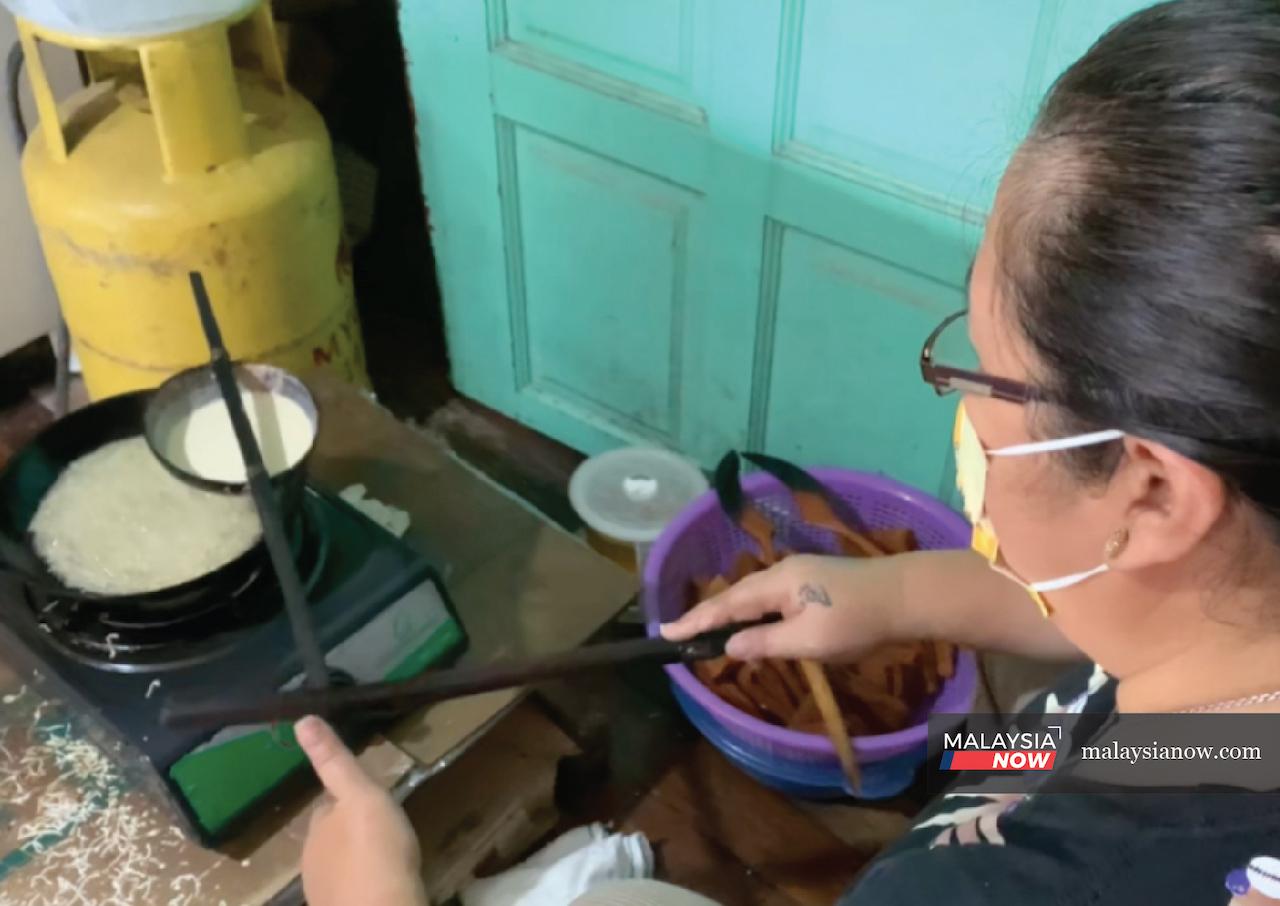From parades and music to dancing alone in pandemic-season Gawai
Village chief Maria Assim recalls the noise and colour of previous celebrations but says safety comes first this year.
In any normal year, Maria Assim would be busy overseeing preparations for the Gawai Dayak festival, from preparing traditional dishes to monitoring activities throughout her home village of Kampung Tabuan Dayak in the capital city of Kuching.
As village chief, her responsibilities are manifold but she would always find time to focus on her family’s arrangements as well, including the preparation of kuih jala, a traditional dessert, and the production of a rice wine known as tuak.
Normally this is a task that she performs every year. With Covid-19 on the loose, though, it has been two years since she last made the wine, produced from glutinous rice mixed with homemade yeast and a staple at most Gawai celebrations.
“What the old people say is there should be the aura of Gawai and the smell of cake and tuak.
“But this year I didn’t make tuak as we still have stock from the previous year because people were not allowed to visit, just like this year,” she said.
“It is a merry time where family members and friends from all races, including foreigners, come together from far and wide,” Maria said.
There would also be live bands to entertain the crowd.
“People would take turns to sing, and the floor would be filled with people dancing.
“It is also a chance for the younger generation, especially those from the cultural troupes, to showcase our traditional dancing skills.”
But as with so much else, Covid-19 has changed everything.
With infections spreading across the state, there are no longer communal celebrations of any sort.
Instead, Maria said, the villagers will perform the “poco-poco” dance alone in their homes.
This is a far cry from the noise and colour of normal Gawai celebrations, but Maria and her family are just glad for any chance to communicate with their relatives during the festival period.

“I am so glad that communications technology has improved so much,” the 53-year-old said. “We will do a video call in the morning for our Gawai wishes.”
Before Covid-19, she said the excitement of Gawai would centre on the arrival of her family members from Miri and Kuala Lumpur who would fly back to Kuching for the celebration.
“On Gawai day, we would invite ministers to join us,” she recalled.
Now, though, things are very different.
“What is important is that we celebrate this Gawai safely and follow all the SOPs so that we can celebrate many more Gawai days to come,” she said.
But while communal celebrations are a no-no this year, she must continue overseeing her villagers as she has always done – this time for a different reason.
There must be no visiting whatsoever in the settlement.
“There will be police patrolling the area, so I told them if they are caught for defying the SOPs, they are responsible for their actions,” she said.
Subscribe to our newsletter
To be updated with all the latest news and analyses daily.
